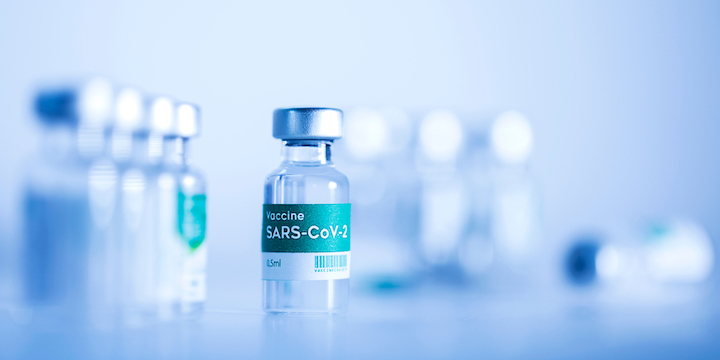From when does vaccination fully protect against covid? Vaccine immunity is built gradually and the majority of anti-covid vaccines available today require two doses. But a single dose already seems to provide protection, at least in the short term.
Less transmission after a dose
In any case, this is what the latest data available on the subject show. Very recently, on April 28, the British health agency Public Health England claimed in a study that a dose of vaccine already halved the risk of transmission of the coronavirus.
According to this study of 57,000 people vaccinated with Pfizer or AstraZeneca, people infected with the virus three weeks after their first injection have a 38% to 49% reduced risk of transmitting the virus to members of their household. And, after four weeks, one dose of the vaccine can also reduce the risk of developing symptoms if infected by 60-65%.
Read also: Covid: can we drink to our vaccination?
No effectiveness before 15 days
But not before. The effectiveness of the vaccine is indeed built gradually and no protection seems to exist in the two weeks following the first injection.
This is what an Israeli study, conducted in real conditions on nearly 600,000 people vaccinated with the Pfizer vaccine, published on April 15, 2021 in the New England Journal of Medicine (NEJM).
According to these data, vaccine efficacy only appears between the 14th and 20th day following the first injection. It is then 62% for the prevention of serious forms of the disease and 75% for the risk of hospitalization.
Maximum protection after the 2nd dose
Then, it continues to increase in the following weeks: these figures increase respectively to 80% and 78% between 21 and 27 days after the first dose.
Finally, one to two weeks after a second dose of Pfizer vaccine, the vaccine efficacy is 92 to 94% for severe forms and 87 to 93% for hospitalization.
Same observations for other vaccines: In general, vaccine efficacy is about 60 to 80% three to four weeks after administration of a single dose of Pfizer, Moderna or AstraZeneca vaccine. This effectiveness increases to more than 85% after a second dose, according to the Canadian health agency Ontario Public Health.
Extend immunity over time
So is the second dose really useful? Admittedly, the difference in effectiveness one month after the first dose and two weeks after a second dose is not that great.
But it’s all about sustainability. Thus, the first dose would aim to create the immune response within a few weeks. And the second dose would amplify it. The response would then be more intense and would be prolonged over time.
The infection “replaces” the 1st dose
What about people who are already infected and cured, to whom health authorities recommend only one dose of the vaccine? The infection serves as the first dose: it created the immune response. But this seems to decrease in a few months. The vaccine dose therefore acts as a booster, which prolongs this immunity. Provided that it is carried out within a precise range: between three and six months after infection.
 Cherry tomatoes contaminated with salmonella: 92 sick and 1 dead
Cherry tomatoes contaminated with salmonella: 92 sick and 1 dead  A better coaching method can make a person grow
A better coaching method can make a person grow  What is the method to prevent diabetes in children?
What is the method to prevent diabetes in children?  What are the effective factors in causing stomach ulcers?
What are the effective factors in causing stomach ulcers?  Why do embarrassing memories seem to appear at night?
Why do embarrassing memories seem to appear at night?  The amazing link between SARS-CoV-2 infection and newly started diabetes
The amazing link between SARS-CoV-2 infection and newly started diabetes  WHO says monkey pox is not a global emergency right now
WHO says monkey pox is not a global emergency right now  Single cell RNA sequencing uncovers new mechanisms of heart disease
Single cell RNA sequencing uncovers new mechanisms of heart disease  Hepatitis of unknown origin: 3 new deaths and 228 cases worldwide
Hepatitis of unknown origin: 3 new deaths and 228 cases worldwide 